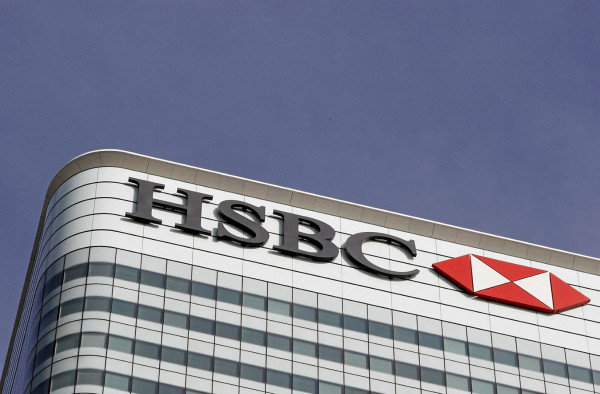

In the first ruling of its kind, the UK’s advertising watchdog has banned a series of sustainability-focused adverts from HSBC bank because of their misleading environmental claims.
The Advertising Standards Authority (ASA) banned two adverts by the bank because they did not mention its financing of fossil fuel projects and links to deforestation.
The ruling marks the first time the watchdog barred adverts by a bank on greenwashing grounds and sets a precedent for the financial sector.
The ASA told HSBC that future marketing communications featuring environmental claims had to be adequately qualified and could not omit material information about its contribution to carbon dioxide and greenhouse gas emissions.
It also told the bank it could no longer run the two adverts in question, which had received a total of 45 complaints.
Greenwashing
The complaints were made against two posters located at bus stops in the run up to COP 26 in October 2021.
The first poster featured an image of waves crashing on a shore with text that stated "Climate change doesn’t do borders. Neither do rising sea levels. That’s why HSBC is aiming to provide up to $1 trillion in financing and investment globally to help our clients transition to net zero”.
The second poster featured an image of tree growth rings with text that stated "Climate changes doesn’t do borders. So in the UK, we’re helping to plant 2 million trees which will lock in 1.25 million tonnes of carbon over their lifetime"
HSBC defended the adverts by arguing that they highlighted two “tangible specific short-to-medium term initiatives” that did not represent “in a broader sense” the bank’s green credentials or environmental contribution.
The bank also contested that because the adverts were placed in the run up to COP 26 and had a call to action inviting consumers to search “HSBC Sustainability”, this would have “affected how the average consumer understood the claims made”.
The ASA rejected these arguments and said it did not accept that because of the COP 26 context consumers would understand the intricacies of transition to net zero.
It added that consumers would “not expect that HSBC, in making unqualified claims about its environmentally beneficial work, would also be simultaneously involved in the financing of businesses which made significant contributions to carbon dioxide and other greenhouse gas emissions and would continue to do so for many years into the future".
It pointed to the bank’s 2021 annual report, which showed that its financial emissions for the year stood at around 65.3mn tonnes of carbon dioxide for oil and gas alone and noted that this figure was likely to be much higher once other carbon intensive industries were analysed and included.
It further noted that it understood from the report that HSBC intended to continue funding thermal coal mining and power production – a type of fuel that emitted high levels of carbon dioxide and other greenhouse gasses – to some degree until 2040.
Overall it concluded that the adverts omitted material information about its emissions and were therefore misleading.
The complaints against the adverts were led by Adfree Cities, who have filed similar complaints against Barclays and Standard Chartered adverts that appeared on Facebook in 2022.
Adfree Cities, Robbie Gillett said: “This is a significant moment in the fight to prevent banks from greenwashing their image.
“HSBC can no longer ply us with ads pretending they are green while continuing to bankroll climate breakdown in the background.
“HSBC and other banks such as Barclays and Standard Chartered must stop funding fossil fuels instead of attempting to buy public favour with deceptive marketing campaigns, before these reputational risks turn into legal ones.”
Polling by Market Forces in January 2021 found that only 19 per cent of HSBC customers were aware that the bank funds fossil fuels.
Having provided £115bn to fossil fuel companies since the Paris Agreement was signed in 2016, HSBC is the 13th largest fossil fuel funder in the world, and continues to finance energy firms with major oil and gas expansion plans, including ExxonMobil and Saudi Aramco.
This is despite major warnings from energy experts and climate scientists stating that to stay within liveable limits, no more oil and gas projects can go ahead.
jane.matthews@ft.com



